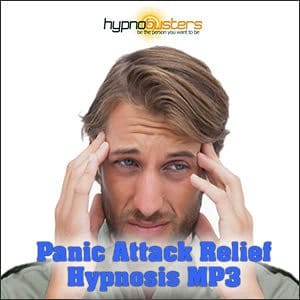
What is a panic attack?
It is normal and natural to get panicky from time to time. You may be late for work, think you can hear a burglar, or ready to sit an exam. These feelings are normal and pass fairly quickly.
These feelings are down to our natural ‘flight or fight’ responses. Your heart beats quicker and your digestive system closes down in order to allow your body to concentrate on the perceived threat.
A panic attack has similarities with this, but there are some differences. A panic attack often occurs when there is no obvious physical threat, and the feelings are stronger than ‘normal’ panic.
 But remember this – Panic attacks are not dangerous and nothing bad is going to happen to you.
But remember this – Panic attacks are not dangerous and nothing bad is going to happen to you.
It’s important that you accept this. A panic attack is like a false alarm – like an annoying smoke detector that goes off at the wrong times.
Your ‘alarm system’ was designed millions of years ago when we had more dangers to deal with. We have a lot less potential threats to deal with now, but your body doesn’t know this. Instead we have lots of modern stresses to deal with, that we are not designed to experience. (Check out my article about why stress is like a glass of water).
A large number of people have experienced panic attacks at some point in their lives. Some people get them daily, whereas others get them every few months. They are fairly common and not a sign of mental illness, but they can affect people more if they have conditions such as an anxiety disorder or borderline personality disorder.
Some of the symptoms include:
- Heart pounding, beating fast, or missing a beat
- Chest pains
- Breathing fast or feeling short of breath
- Numbness or tingling in the fingers toes or lips
- Feeling sick
- Feeling faint
- Feelings of terror
- Feelings of unreality, like you are not really there
- Feeling anxious in situations where you have had a panic attack before
People often think negative thoughts, which are untrue, such as:
- I am having a heart attack
- I am going to be sick
- I cannot breath
- I am going to make an idiot of myself
- I have to get out of here now
After experiencing a panic attack people sometimes escape the situation they think caused it, and avoid it. This re-enforces the fear. The longer you leave it before facing the situation again, the more your mind is convinced the same will happen.
It is better to quickly face the situation again, even if you need to ‘dilute’ it at first. For example if you had a panic attack in the supermarket, you may wish to visit the supermarket but not go in. For the next step you may wish to go inside, but not buy anything. Next you may wish to do a small shop, or have a friend to go with you. After a while you can gradually get back to normal.
By challenging your fears you become more in control, and the attacks should become less common.
Panic attacks are successfully treated with hypnosis. They are down to your subconscious mind triggering your automatic fear response. Hypnosis can reprogram your subconscious to stop this…

